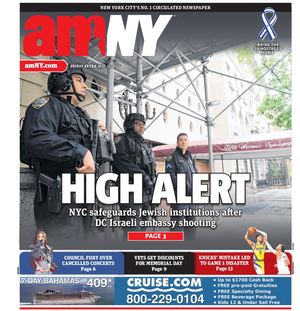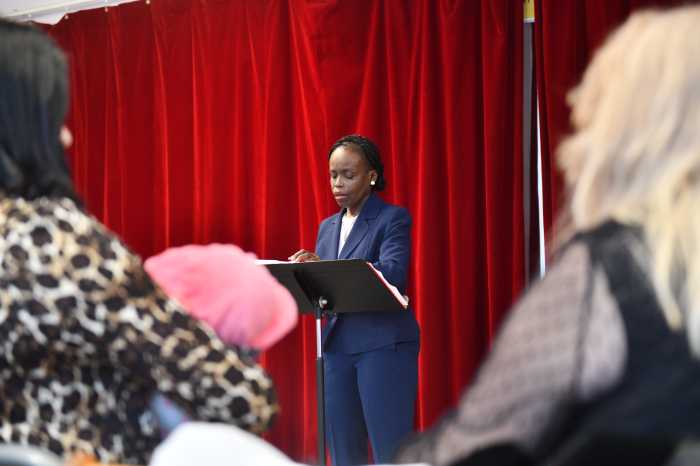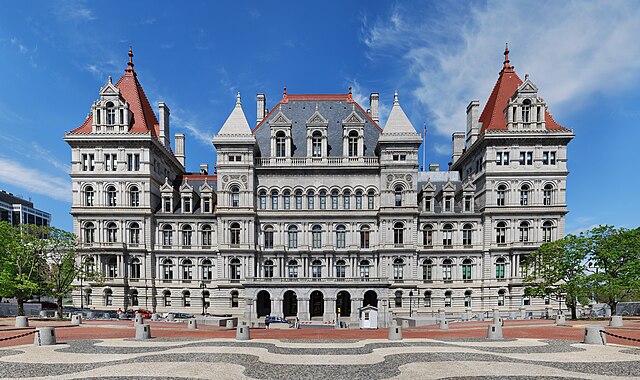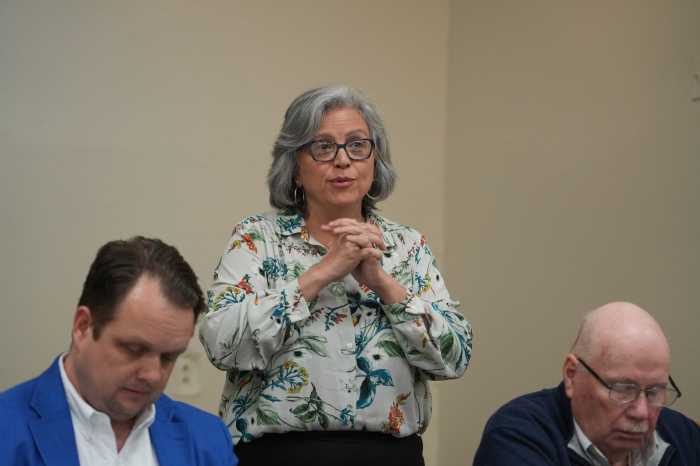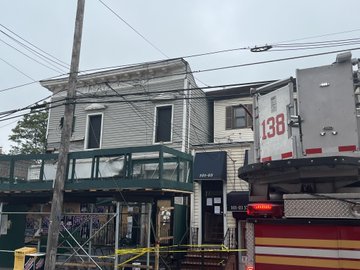By Josh Rogers
Manhattan Borough President Scott Stringer rejected a $550-million hotel and condo project at 50 West St. Wednesday because it includes no money for affordable housing.
Stringer told Downtown Express that the subsidized project has little “tangible public benefit for the city” and there would have to be a substantial investment in affordable housing in order for him to change his mind. Stringer said all of the money the city collects on the project would have to stay in Downtown’s Community Board 1 area. A few hours later, he filed his official rejection, which is only advisory but is likely to have influence with the City Council’s Manhattan delegation. The project cannot proceed without City Council approval.
Under the proposed deal, Time Equities would buy 183,000 square feet of air rights from the city and knock down the green-topped, 1912 building at the southern end of West St. to build a 63-story tower with 400 condos and 183 hotel rooms. Francis Greenburger, chairperson and C.E.O. of Time Equities, said he expected to pay the city about $30 million for the air rights.
Greenburger, in a telephone interview, said he isn’t too troubled by Stringer’s rejection since it is up to the city to fulfill the borough president’s housing goal.
“It’s between him and the city… I would have preferred if he could have worked it out,” he said. Greenburger said it would be “foolish” to build affordable housing units at 50 West because it is a particularly expensive building to construct, but he does think Lower Manhattan needs more below-market housing.
He is looking to acquire a particular Downtown property soon that he said is well-suited for a “substantial affordable housing component.”
Greenburger’s director of acquisition and development, Phillip Gesue, outraged some Community Board 1 members in June when he told them they should move to Brooklyn if they couldn’t afford the rising rents Downtown. Greenburger said Wednesday that he disagreed with his employee.
“That’s not my view,” Greenburger said. “It’s desirable to have affordable housing whenever it is possible.”
Stringer said he has high regard for Greenburger and was hopeful the developer would help create more affordable housing Downtown. C.B. 1 also called for the project to have affordable housing and for the money to stay in Lower Manhattan. Nevertheless, the board gave an official yes to the proposal.
City officials declined to comment for attribution for this article. One, speaking on the condition on anonymity, said the city sees the project as an improvement to the area and has no intention of tying any more specific community benefits to it. The project is next to a dangerous pedestrian area near the entrance to the Brooklyn-Battery Tunnel and includes improving the pedestrian access through narrow Ward St., creating a small public plaza there. Greenburger has agreed to buy laptop computers for I.S. 89 students, which will allow the school to close its computer room and free up classroom space for overcrowded P.S. 89.
The board hoped the conditional yes vote would have more influence than a rejection, but that message may have been lost in translation, at least according to the city official.
“A conditional yes is a yes,” he said.
Stringer said he thought the best way to get changes was to make it clear the current plan was unacceptable.
Julie Menin, Community Board 1’s chairperson, tried to get her fellow board members to take a harder line in June. She said Wednesday she was “quite surprised the board did not have a sense of outrage over West St.” She was surprised that few residents showed up to object to the plan and said that may have influenced board members. She said she was glad when Stringer called to tell her of his decision.
Menin did end up backing the board resolution when members agreed to change the language from “support” to “conditionally support.”
Councilmember Alan Gerson said he wants to add an affordable housing component to the proposal, but he has not made that a condition for his approval. He and his aides negotiated the I.S. 89 computer agreement before the plan was presented to the community board and one aide spoke favorably of the proposal during the early community board discussions.
Gerson said now that the plan moves to the Council, he expects negotiations with Time Equities to resume. He said he has already told executives of the need for affordable housing.
Getting the computers was only a first step, he added. “We made it clear that was a prerequisite,” Gerson said, “but we made it clear that was not enough.”
